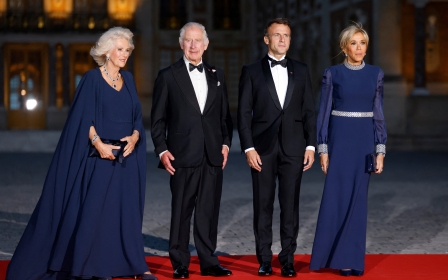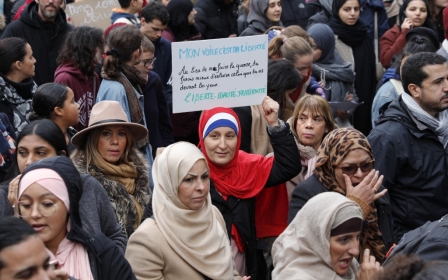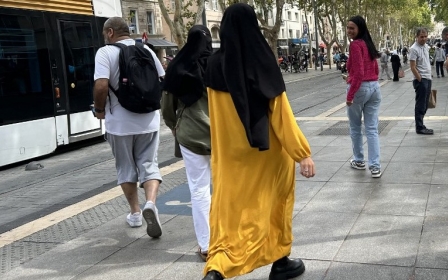Paris Olympics 2024: France bans own athletes from wearing veil
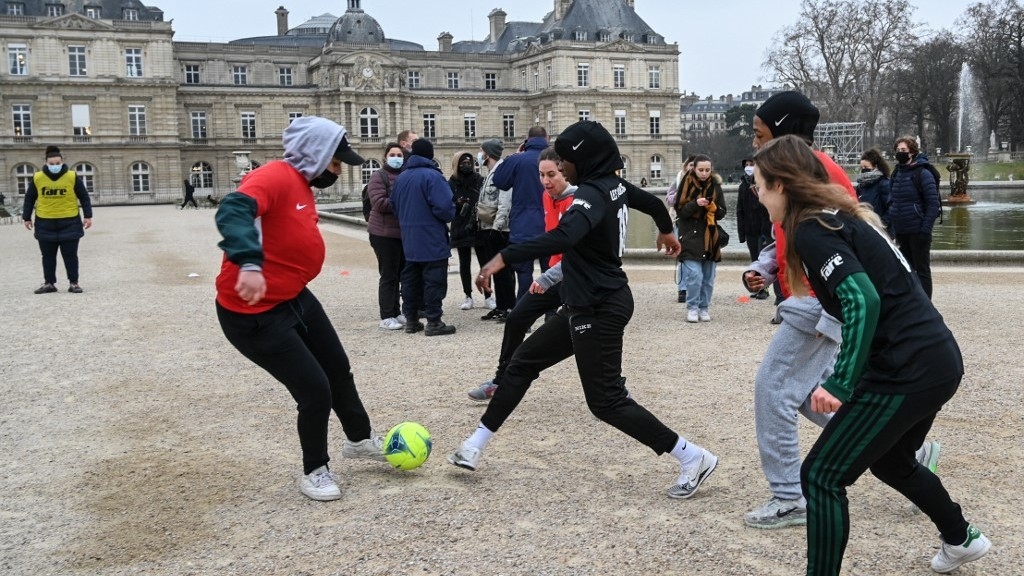
French athletes will not be allowed to wear veils during the Paris Olympic games set to be held next year, the country's sports minister announced on Sunday.
Appearing as a guest on the show Sunday In Politics, airing on the channel France 3, Amelie Oudea-Castera said that no member of the French delegation would be allowed to wear the head covering.
"The representatives of our delegations in our French teams will not wear the veil," she said, further hinting that restrictions may be extended.
"As for the French position on the subject, we have, thanks to a recent decision of the Council of State, expressed very clearly with the prime minister our attachment to a regime of strict secularism, strictly applied in the field of sport," she added. "This means the prohibition of any form of proselytism, the absolute neutrality of public service."
The statement comes amid a heightened focus on Muslim dress in France, shortly after the country implemented a ban on school girls wearing the abaya dress.
New MEE newsletter: Jerusalem Dispatch
Sign up to get the latest insights and analysis on Israel-Palestine, alongside Turkey Unpacked and other MEE newsletters
Muslim women in France are already banned from wearing the veil, or hijab, while working as public servants and in schools.
Many employers also have unwritten rules on hiring women who wear the headscarf or decide to start wearing one during employment.
The ostensible reason for the restrictions are to comply with France's hardline interpretation of laicite, or state-enforced secularism, which bans symbols of religion within state institutions.
While in theory the restrictions apply to all religions, in practice, Muslim women, who adopt headscarves or abayas for religious or cultural reasons, are the main targets.
Calls for boycott
The ban on women wearing hijab at the event has triggered a wave of anger online and many have been using social media platforms to call for boycotts of the event.
"Oh no… we'll have to boycott the 2024 Olympic Games in Paris as the Minister of Sports just explained that French athletes won't be able to wear the hijab. Is it also for foreign athletes!?! If yes, then the American Ibtihaj Muhammad couldn't have won her bronze medal," one social media user posted on X, formerly known as Twitter.
"No respect for women's rights and even less for those of migrants. We must boycott countries that violate women's rights," another posted in response to the interview.
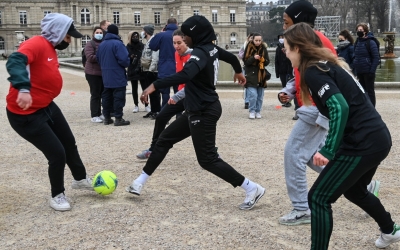
Others stated that sporting events should not have the right to forbid religious symbols, particularly if they do not affect it in any way.
"Leave them alone, seriously. Sport must ignore this, the veil does not hinder sports so allow them to leave it on and that's it. Always looking for problems when there are none," one person commented.
Oudea-Castera also hit out at the International Olympic Committee (IOC) for taking a different stance on the issue.
"The IOC, which governs these rules of participation, is following a logic which considers the wearing of the veil not as religious but as cultural," she said.
Another sporting body, the Federation Internationale de Football Association (Fifa), the governing body of football, has also allowed women to wear the hijab since 2014.
But according to the French news site 20 Minutes, the French Council of State also decided in June that wearing the hijab in women's football would remain prohibited, and that the French Football Federation could enact rules it considers necessary for the "smooth running" of matches.
Abaya ban
Late last month, France's Education Minister Gabriel Attal announced that wearing the abaya would no longer be allowed in educational institutions as it goes against the principles of secularism.
"I have decided that the abaya could no longer be worn in schools," Attal said in an interview with the French TV channel TF1.
"Secularism means the freedom to emancipate one's self through school," he said, describing the abaya as "a religious gesture, aimed at testing the resistance of the republic towards the secular sanctuary that school must constitute".
That decision caused shock waves around the country when a Muslim girl was excluded from school due to wearing the full length robe.
In previous incidents, schoolgirls have even been excluded after wearing skirts that were deemed not short enough.
Activists and rights groups have long expressed concern that an intense focus on the hijab and Muslim women's clothing in general - often under the guise of policies prohibiting religious symbols - was a symptom of normalised Islamophobia in some EU countries.
Middle East Eye delivers independent and unrivalled coverage and analysis of the Middle East, North Africa and beyond. To learn more about republishing this content and the associated fees, please fill out this form. More about MEE can be found here.


